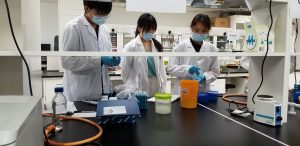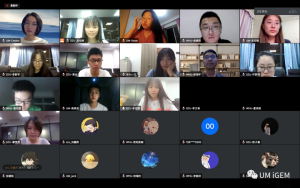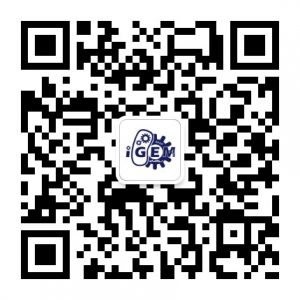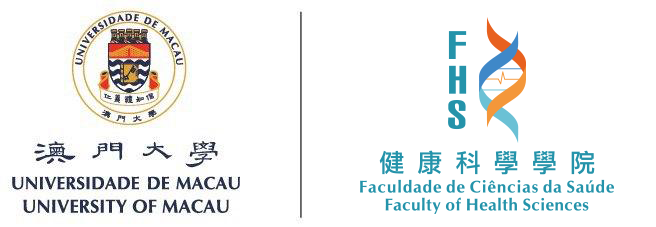A group of students from the University of Macau (UM) Faculty of Health Sciences (FHS) and Faculty of Science and Technology (FST) have been girding themselves for the International Genetically Engineered Machine (iGEM) competition.
Being supervised by FHS Assistant Professor Leo Tsz On LEE, Associate Professors Ruiyu XIE and Tzu-Ming LIU, Yuzhao FENG, Yuanming HE, Ruiying MA, Shuyao XIE, Huichao ZHAO, Chengzong HOU, Hoi Cheng LEONG, Hengyi FU, Ioi FU, Xuemeng LI, Changcheng LU, Chan Tat LEONG, Lun Rochelle YU, Yu Xuan LAU, Lesi CHEN from FHS and Di SUN from FST formed a team to participate in the iGEM competition. The UM team focuses on modifying microorganism to degrade biofilm in fish tanks. Biofilms grow and attach to different surfaces in the aquarium. These biofilms reduce the water quality, and the bacteria in the biofilms can also consume the oxygen supply and nutrient in the water, affecting the health of the lives in the aquarium. The team is building a biofilm degrading system by engineering the bacteria Escherichia coli (E. coli). In this system, the engineered bacteria recognize the signal released from the biofilm in the fish tank and express enzymes to degrade the biofilm. The students will present their research work in the giant jamboree of the iGEM competition which will be held online in November 2020.
The students have established a collaboration with five other iGEM teams from the Dalian University of Technology, Southern University of Science and Technology, Tsinghua University, Wuhan University and Tsuen Wan Public Ho Chuen Yiu Memorial College by forming the Anti-biofilm Community (ABC). The teams in the community exchanged ideas and shared opinions on biofilm via online meetings. In order to promote the knowledge of synthetic biology and biofilm, the teams have produced a booklet, introducing each team’s project and some science stories of synthetic biology.
The iGEM competition encourages students to design their projects using the standard, interchangeable pieces of DNA called as BioBricks to deal with issues they are now facing. The event is not only a competition, but also includes a series of workshops and activities for the iGEM teams to know more about synthetic biology and the industry. All the participants have to conduct laboratory works, set up collaboration, and propose the implementation of the projects in reality. The iGEM competition is a worldwide interdisplinary competition involving not only the fields of synthetic biology but also mathematics, computer science, statistics, etc. for cross-disciplinary collaboration. The iGEM competition was initiated by Massachusetts Institute of Technology students in 2004, and then became a global competition in 2005, giving students the opportunity to push the boundaries of synthetic biology, build up multidisciplinary teams, develop open communities and collaboration among various universities around the world.

The UM iGEM team focuses on modifying microorganism to degrade biofilm

Prof. Leo Tsz On LEE gives advice on the students’ research project

The Anti-biofilm Community (ABC) holds virtual meeting

The handbook of Anti-Biofilm Community (please click for more details)

WeChat account of UM iGEM team


